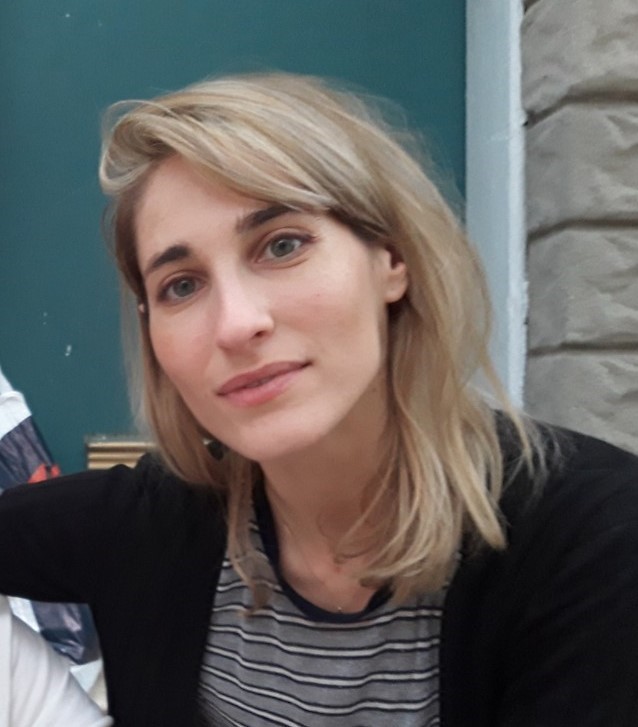Takeaway
WWI Nurse Mary Borden's autobiography provides inspiration to search for the right words to describe our experience, and perhaps, find solace as we face the challenges of medicine.

Lifelong Learning in Clinical Excellence | March 23, 2020 | 4 min read
By Iro Filippaki, PhD, Johns Hopkins University School of Medicine
My pre-med students who shadow experienced staff often find it difficult to reflect on their experience. They take diligent notes, offer successful presentations, and are usually very studious, but something about reflection makes them feel lost for words. In medicine, it seems, words do not always come easy.
Speaking unspeakable words
The staged words often come easy. All my students are skilled at using medical diction and typology: words to communicate with patients, interpret their pain, write reports, and arrive at diagnoses (and write academic essays for me on the culture of medicine). It is when I ask them to reflect on their experience that they have trouble, because, as the complaint often is, they can’t find the right words. Many of medical practitioners’ everyday experiences border on the ineffable. In literature, this is known as the trope of the adynaton (in Latin, impossibilia). This trope is traced as far back as Homer’s Iliad, and it is often invoked when one is too emotionally stunned by what they are witnessing that they claim they cannot even try to describe it. We have all used the trope of the adynaton in our lives when reflecting on overwhelming events, whether overly positive or negative; there are also countless examples of times when a culturally, racially, or gender-imposed adynaton that dictates what can and cannot be articulated is used to silence testimonies.
Even though Mary Borden’s 1929 creative autobiography of the First World War, “The Forbidden Zone,” was written at the peak of the adynaton trope, it is a tour de force that finds all the right words. The American-born WWI author and nurse wrote on her experience of four years of hospital work with the French Army between 1914-1918. Her book, which comprises poems and fragments of storytelling, relies on “true episodes” that she “cannot forget.” Although Borden can’t help invoking the adynaton in the preface of her book, noting that her book omits what “can never be written,” her choice of words does a brilliant work of leaving few things to the imagination. This feat, however, is not performed through rigid literalness, but rather through a combination of narrative tropes and scientific observation:
The moonlight is a pool of silver on the linoleum floor. It glints on the enamel washbasin and slop pail. I can almost see the moon reflected in the slop pail. Everything in my cubicle is luminous. My clothes hanging on pegs, my white aprons and rubber boots, my typewriter and tin box of biscuits, the big sharp scissors on the table—all these familiar things are touched with magic and make me uneasy.
Borden’s description of her role relies equally on relating the mundane and the sublime, while placing her senses at the forefront of her narration, taking patient notice at what she hears and smells:
The sweet sickish scent of new-mown hay, mingling with the smell of disinfectants, of Eau de Javel and iodoform, and wet mud and blood […] The little whimpering voice of a man who is going to die in an hour or two comes across the whispering grass from the hut next door […] There’s that dank smell of a rotting swamp, the smell of gas gangrene.
Poetry in routine
Passages such as these stay with readers, especially those who practice medicine, because they speak to the profession’s paradoxical practice: the “routine,” as Borden calls it, of attending to the most prosaic, often unspeakable events and functions of human life, while maintaining one’s individuality and ambition to perform one’s calling. Equally, detailed descriptions of nursing routine places medical passion to excel in stark relief with traumatized soldiers:
You finger the glass syringes exquisitely and pick up the fine needles easily with slender pincers and with the glass beads poised neatly on your rosy finger tips you saw them with tiny saws. You flaunt your perfect movements in the face of his mysterious exhaustion. You show off the skilled movements of your hands beside the erratic jerkings of his terrible limbs.
The routine becomes almost sacred in Borden’s sketches, accompanied by a common style in her writing, the compilation of lists, which not only comfort, but also ensure that the simple activities of any career are not forgotten. At the same time, her ability to describe one event through cascading metaphors makes the reader pause and marvel at the force of everyday events:
THIS is the song of the mud,
The pale yellow glistening mud that covers the hills like satin;
The grey gleaming silvery mud that is spread like enamel over the valleys;
The frothing, squirting, spurting, liquid mud that gurgles along the road beds;
The thick elastic mud that is kneaded and pounded and squeezed under the hoofs of the horses;
The invincible, inexhaustible mud of the war zone.
Borden daily dealt with “the dying, the desperate, the moribund” as medical staff often do. Her nursing experience influenced a great deal of her writing, and though we cannot be sure whether she found closure by writing about the war, her diction inspires us to search for the right words that can describe our experience, and perhaps, bring solace and satisfaction.

